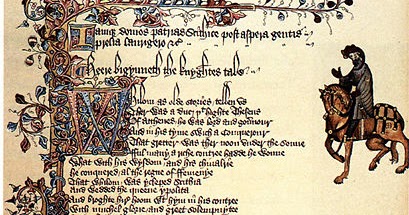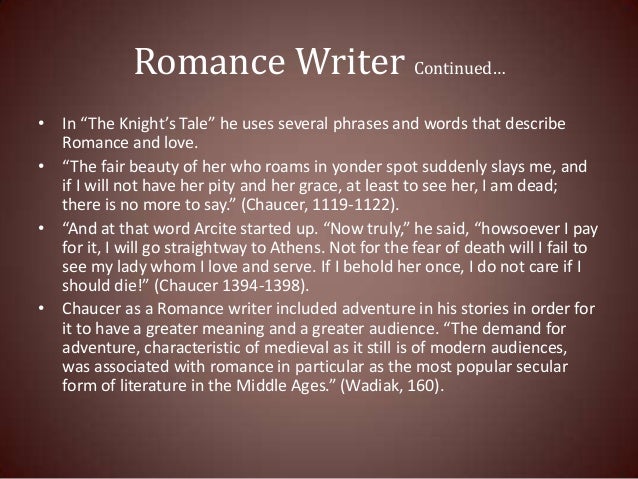
She enjoys the thrills of maidenhood too much to have them ended by a marriage.

This is so ironic because Arcite and Palamon are about to kill each other for her love and she doesn’t want to be loved by either of them. she expresses this in prayer to Diana, the goddess of chaste, ” Well you know that I desire to be a maiden all my life I never want to be either a beloved or a wife.” The ironic fact about the relationship between the two knights and Emily is that Emily does not wish to marry either of the knights. Perhaps he feels that without her he will surely die, so why not die trying to win her. The love that Palamon feels for Emily is so overwhelming that he is willing to take on an armed man, in mortal combat, just for the love of a woman. either you shall die or you shall not love Emily.” At one point Palamon says to Arcite, ” Though I have no weapon here. The love that Palamon and Arcite feel towards Emily is so strong that the two knights feel that it is worth more than life.

In “The Knights Tale”, the love between the two knights and Emily is intensely powerful. Some of the loves are based on nobility, some are forced and some are based on mutual respect for each partner.

Three of these tales “The Knight’s Tale”, “The Wife of Bath’s Tale”, and “The Franklin’s Tale”, involve different kinds of love and different love relationships. But who among them is a cold-hearted killer? It’s up to Chaucer, with his sharp wits and eye for detail, to root out the evil within.The Canterbury Tales, written by Geoffrey Chaucer around 1386, is a collection of tales told by pilgrims on a religious pilgrimage. As he questions the castle’s inhabitants, it becomes clear that more than one member of the Duke’s household had reason to wish him ill. On arrival at Clare Castle, Chaucer finds his childhood home rife with bitter rivalries, ill-advised love affairs and dangerous secrets. The man who found him, Sir Richard Glanville, suspects foul play and has asked Chaucer to investigate. The Duke of Clarence, Chaucer’s former guardian, has been found dead in his bed at his Suffolk castle, his bedroom door locked and bolted from the inside. About to set off on his annual pilgrimage, Comptroller of the King’s Woollens and court poet Geoffrey Chaucer is forced to abandon his plans following an appeal for help from an old friend. Introducing 14th century poet Geoffrey Chaucer as a memorable new amateur sleuth in the first of an ingeniously-conceived medieval mystery series.


 0 kommentar(er)
0 kommentar(er)
